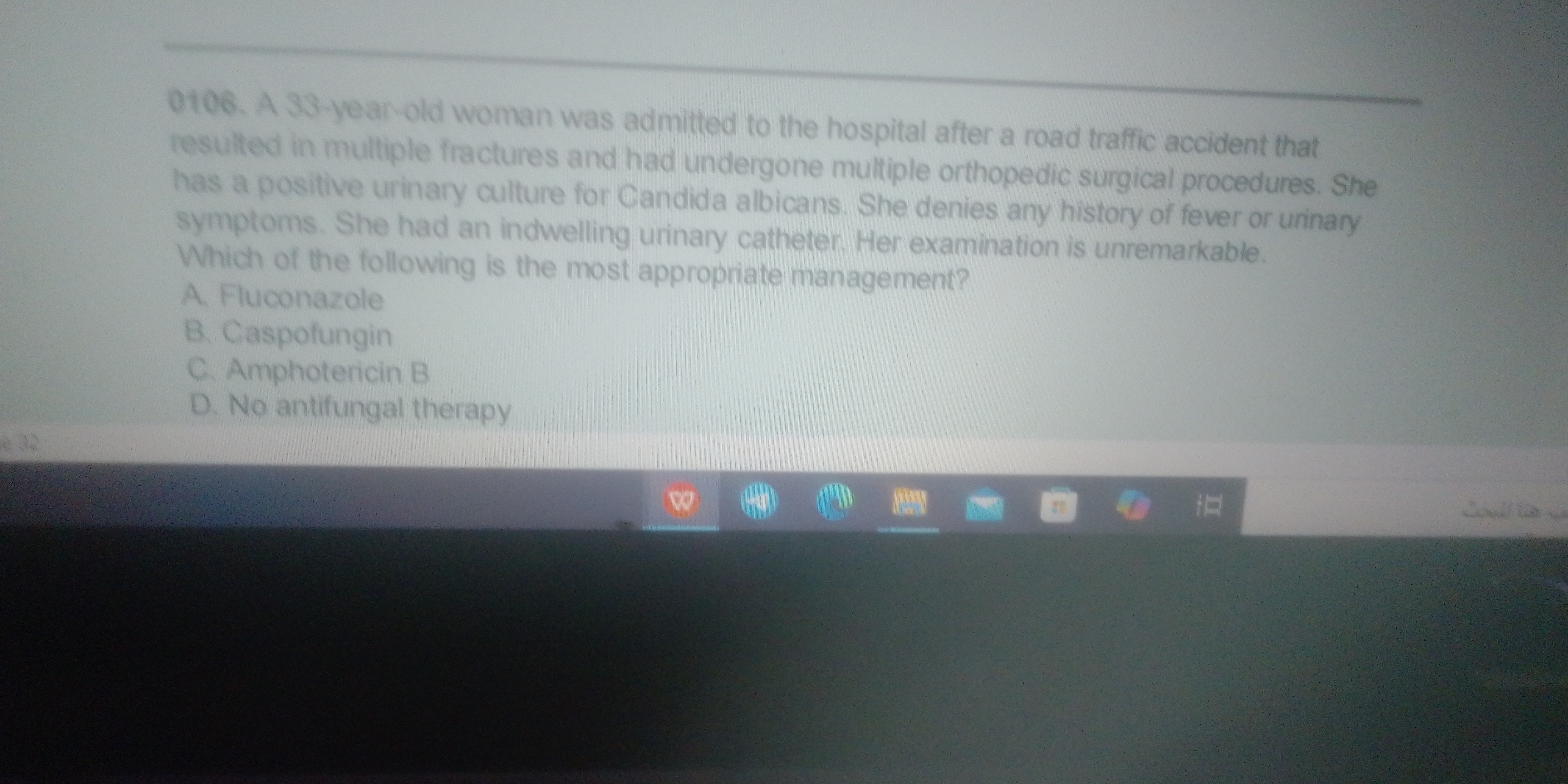A 35-year-old woman was admitted to the hospital after a road traffic accident that resulted in multiple fractures and had undergone multiple orthopedic surgical procedures. She ha... A 35-year-old woman was admitted to the hospital after a road traffic accident that resulted in multiple fractures and had undergone multiple orthopedic surgical procedures. She has a positive urinary culture for Candida albicans and denies any history of fever or urinary symptoms. She had an indwelling urinary catheter. Her examination is unremarkable. Which of the following is the most appropriate management? A. Fluconazole B. Caspofungin C. Amphotericin B D. No antifungal therapy

Understand the Problem
The question presents a clinical scenario involving a 35-year-old woman with a urinary culture positive for Candida albicans and asks for the most appropriate management based on her symptoms and medical history.
Answer
No antifungal therapy.
The final answer is D. No antifungal therapy.
Answer for screen readers
The final answer is D. No antifungal therapy.
More Information
When Candida is found in urine cultures and there are no symptoms of infection, it is often considered colonization rather than an active infection, especially with an indwelling catheter. Therefore, antifungal treatment is not typically recommended unless symptoms are present.
Tips
A common mistake is treating asymptomatic candiduria. Treat only if there are symptoms or risk factors like neutropenia.
Sources
- Catheter-associated Urinary Tract Infection (CAUTI) - spice.unc.edu
AI-generated content may contain errors. Please verify critical information